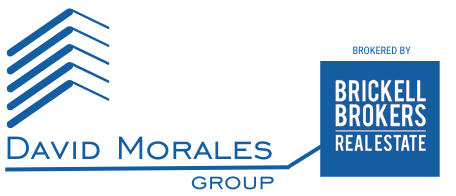How we work with Family Law Attorneys and Mediators
Our Services Provide Value to Family Law Attorneys, Mediators and your Clients
We assist Family Law Attorneys, Mediators and your clients in either a Litigated Process or Collaborative Process (as we are also trained to do).
Our service is an integrated, efficient, predictable and repeatable protocol that overlays onto your discovery process. It tackles all of the necessary analysis, document gathering, evaluation, and conclusions, to determine practical strategic options and solutions related to Real Estate and its financing during and after the Divorce. This service goes far beyond what a regular real estate agent can provide.
You can then consolidate our findings and recommendations into the broader Marital Balance Sheet calculations and ensuing interest-based negotiations of Equitable Distribution and the construction of the Settlement Agreement.
We work in a coordinated way with you, the Attorney/Mediator, and your paralegal/admin team throughout the process.
Our Value Proposition
The Value Proposition that we deliver for your divorcing Clients regarding Divorce Real Estate and its associated financing is summarized as:
Helping the Parties make informed Real Estate decisions regarding keeping the Marital House or other properties, how to finance/refinance it, or the planning and executing an appropriate sale process.
We help the Parties achieve Enhanced Property Due Diligence, meaning we can uncover:
House Title Issues. Is the Title free and clear in this situation? What other encumbrances might be present?
House Insurability Issues. Can the house be adequately insured going forward?
House Condition Issues. Is there a need for a Home Inspection that may lead to better maintenance cost and code compliance information going forward?
House Financing Issues. Establish correct and accurate Divorce Mortgage Guidance
Enhanced Property Due Diligence is an important part of determining actual and accurate property value, as well as ongoing future costs to keep the property.
We advise the Parties on maximizing consumer protection in the near future by:
Preserving Homeownership Eligibility – the ability for each divorcing party to continue to either own or rent a new or current residence post-divorce
Preserving Credit Scores - avoiding mortgage delinquencies etc., and maintaining credit capacity to enable loan eligibility
Divorce Mortgage Guidance means making correct mortgage investigations and assumptions regarding refinancing:
House secured debt may be increasing!
House equity may be decreasing!
May uncover fraudulent or inadvertent (“concealed”) encumbrance of the Marital Property!
Calculating correct income and income support to a refinance application
Often, the refinancing will include 50% of the Total Net Equity as a distribution to the party not remaining in the property, in addition to the its new total financing amount
If this is not possible and the Party remaining in the property does not qualify, then the house should be listed and sold, with the liquid net proceeds available for distribution
We help provide Increased confidence in factual and correct critical Marital Balance Sheet information. Especially Real Estate asset/liability values and actual and expected Net Equity in the Marital House
This reduces later legal and practical problems in division of assets/liabilities due to errors, omissions or misrepresentations
Be comfortable that the Divorcing Parties are making informed and voluntary decisions regarding the Marital Balance Sheet and its equitable distribution
This is based on thorough and enhanced information provided at the right time, generally the earlier the better
Achieve Full Disclosure and Informed Consent from the Parties
Early Timing is Important
It’s critically important to begin the Enhanced Property Due Diligence and Divorce Mortgage Guidance processes early during the divorce process.
Better information = Better outcomes.
Divorcing Parties and their Attorneys must have an accurate view of the marital balance sheet regarding Real Estate before Asset and Liability division can be negotiated and finalized in a Settlement Agreement.
If there is a refinance required for equitable division purposes, we must know whether the borrower can refinance the current mortgage PLUS any equity interest owed and to be transferred to the other party
When we start our work as early in the process as possible, we can find, prevent and fix a large array of potential problems in time
Informed Decision-Making
The objective is to avoid uninformed decision-making and to identify pertinent risks related to Real Estate valuation, division and disposition
These risks encompass:
Physical Risks – Possible adverse house condition and unexpected repairs or code compliance costs
Financial Risks – Insurability, Mortgage, Liens, Taxes, Foreclosure, Short Sale, Bankruptcy
Legal Risks – Insurable Interest, Chain of Title, Form of Tenancy during the marriage and after divorce
Emotional Risk – Decision-making based purely on emotional considerations
Economic Risk – Housing Market, Mortgage Market, General Economy (Inflation, Recession etc.)
House Resizing is an analysis undertaken by both parties in the Divorce:
The goal is to properly assess whether one of the spouses can fully afford to refinance and maintain the current Marital House over an established time period, or not
Once this analysis is undertaken and a decision made, then both parties can move forward on defining their residential living arrangements and requirements post-divorce
We then assist the Parties with the realization of this decision:
Looking at possible future residential options – sell, buy, rent - and their financing implications for each Party.
Specialized Communication Skills
Most Divorce Clients are experiencing a host of unhealthy and unproductive negative emotions that will ultimately guide their behaviors and choices
To help the Parties navigate this turbulent process in an efficient manner, we must be able to communicate in a way that provides clarity, comfort, and confidence. As specially trained professionals, we provide and support:
Emotional State Management
Perceptual Positioning
Avoiding resistance and maintaining co-operation with your Clients
Effective methods of information gathering and precision questioning
Expectations Management
